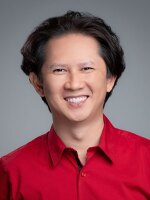Canyon Crest Academy Foundation is pushing back against allegations that it was mismanaging funds raised by student clubs.
In September, two students at the Carmel Valley school published a report claiming the foundation charges student clubs significantly higher fees for donations than similar foundations at other schools. The report was posted on RavensforTransparency.org.
Because of the report, the San Dieguito Union High School District announced it would audit all school foundations connected to the district. The school board discussed a request for proposals from audit firms at its meeting Thursday and plans to select an auditor next month.
Sandra Sincek, president of the CCA Foundation, welcomed the audit and expects it to reveal nothing unusual.
"A vast majority of our community trust what we do," she said. "And that is to make sure that every kid at the school, every day has an enriching environment."
Kevin Wang and Litong Tian, both seniors, are the students who wrote the report. As a sophomore, Wang was the treasurer of the CCA robotics team, and he said it didn't sit right with him to have 25% of the team's donations go to the foundation. Over the summer, he partnered with Tian to look into the matter.
They discovered that other school foundations charge between 5% and 10%. In their report, the students described the CCAF's charges as "excessive" and said they "appear to be arbitrary charges compared to any other school in the district."
Yvette Roberts, CCAF's vice president of athletics, said the 25% is not a fee, but a reallocation to the general fund for each program — athletics, Envision and STEM.
“So if another school chooses 10%, that must work for their foundation," she said. "For us, you know, let's say we do need a new gym floor. It's going to take time for that, right? But if the 25% comes in, we can fund it in a good amount of time.”
The 75%-25% split was set up when the foundation was created in 2006. Roberts said it's how the foundation can fund big-ticket items that would be too expensive for any one student club.
Kristie Grover, a parent at CCA and a nonprofit executive with 25 years of experience in the industry, said the foundation has been transparent about the 25% reallocation.
"It is everywhere," she said, referring to disclosure about the reallocation. "It’s on the website. It was in orientation meetings. It was in program materials.”
She said all students benefit.
"My daughter was in the Envision Program, and the 25% was not a fee," she said. "It's a reallocation that goes into all the other programs based on need."
The robotics program at CCA is an example, she said. Donations from parents paid for the robotics lab, which used to be the textbook library, and for the equipment there.
“In the case of robotics, they needed additional fencing to help with their robots and trying things out," Grover said. "Also, a 3D printer is something they were able to get, but really it’s based on need within the program.”
Wang and Tian say the benefits do not justify what they say are high fees.
“If you look at Torrey Pines, for example, they charge under 10%. I think five or slightly above that, but under 10 at Torrey Pines — a third of what we charge," Tian said. "Their robotics team is very comparable to ours. They've scored better than us many times in the past few years.”
The pair alleged that some money went toward executive pay and undefined expenses. In their report, they found that roughly $700,000 — more than a third of CCAF's spending — was categorized as "other expenses," according to the foundation's tax returns form.
"We're the only school that we could find where other program expenses was the single largest category," Tian said. "That's not normal. That's not how it's supposed to work. So parents and donors are in reality have comparatively very little transparency into where their money goes because of how much they're just putting into vague expenses category."
Sincek said the expenses were listed in detail in their books. Some of the "other program expenses" for the 2022-2023 school year included:
- $349,618 for Big Ideas campus upgrades
- $101,050 for fundraising expenses
- $164,377 for license expenses
- $128,052 for costs associated with running camps, such as the robotics camps.
Those items total $743,097. The foundation said its accountant lumped all those expenses under "other expenses" in its IRS 990 form, which must be filed annually.
Grover said it's common for nonprofits to lump expenses into one line item on tax returns.
"They've had advice from accounting, and they've had advice from tax professionals," Grover said. "It's above-board."
Sincek said she's looking forward to the audit to clear any misunderstandings about how the foundation is run.
The students said they are willing to accept the result of the audit, whatever it may be, if it's done in a transparent manner.






